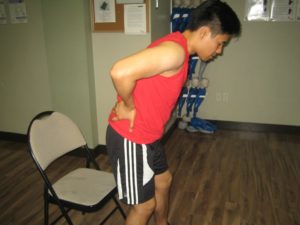An anal fissure is an open sore or tear found in the coating of the anal canal. The breaks in the skin cause severe pain and presence of bleeding during and after bowel movements. Sometimes, the fissure is very deep, and tissues of the muscles are exposed. Infants and young children are susceptible to this condition and usually caused by constipation. In addition, the condition heals in about 4-6 weeks and it becomes chronic or long term if it extends beyond 8 weeks.
Symptoms of an anal fissure
- At first, presence of skin tag or small lump of skin found near the tear.
- A visible break in the skin around the anus.
- Severe pain and streaks of blood in the stool after a bowel movement.
- Lastly, burning and itching sensations in the anal area.
Causes

- Passing out large or hard stools
- Frequent diarrhea or constipation
- Straining during childbirth
- Very tight or spastic anal sphincter muscles
- Inflammatory bowel disease such as
- Crohn’s disease and ulcerative colitis
- Sometimes, a sexually transmitted infection such as herpes or syphilis can cause infections
Treatment
- Take a Sitz bath to relax and for fast healing of the fissures. Fill a bathtub with water, add lavender essential oil and stir. Soak the body up to the waist for at least 15-20 minutes, 2-3 times every day. Another alternative is applying a warm compress on the anal area after bowel movement. Sit on a heating pad for at least 15-20 minutes at a time to lessen the pain.
- Apply a topical ointment to the anal muscles to lessen the spasms and the pain at least 2 times every day for 6 weeks.
- Prescribed numbing cream to lessen the burning sensations or irritations on the area.
- Prescribed laxatives for easy passing out of very hard stools and lessen the pain. It softens the stools and for fast healing of the fissures.
- Prescribed Botox injections for the anal muscles to lessen the pain and the spasms of the muscle.
Tips
- Perform regular exercises at least 30 minutes of physical activity for proper bowel movements and lessen fissures.
- Drink plenty of water at least 8 glasses or more of water every day to prevent constipation and cause development of fissures.
- Increase consumption of fiber and leafy green vegetables in the diet.
- Avoid delaying bowel movements to prevent constipation.
- Maintain proper hygiene, keep the area dry and clean to prevent moisture and a high risk of developing bacterial infections.
- After every bowel movement, wipe the affected are using a soft toilet paper. Avoid rough and scented toilet paper to prevent further irritations.
FACT CHECK
https://www.webmd.com/digestive-disorders/anal-fissure-treatment#1
https://www.nhs.uk/conditions/anal-fissure/
https://www.mayoclinic.org/diseases-conditions/anal-fissure/symptoms-causes/syc-20351424
